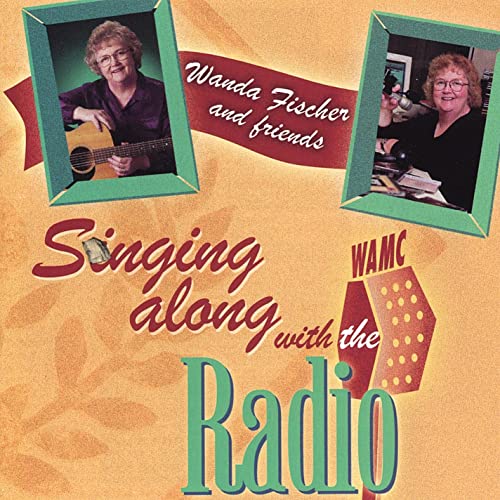
Today, March 4, is National Grammar Day.
I have always been a stickler for grammar. Even when I was in elementary school.
When we were in grammar school and learned to diagram sentences, we students always thought that was an exercise in futility. We used to have a cartoon on our refrigerator with a young child at the blackboard, chalk in hand, asking his teacher, “Say, just how much does a sentence diagrammer make in a year, anyway?” Based on what my grandchildren tell me, students don’t learn to diagram sentences these days. As I look back, I do think it was a valuable exercise. Marketable? Not necessarily. Useful? Yes.
When I was still working at my “day” job, they called me the Grammar Queen.
However, when I began working for New York State, it became a bit of a battle. In state work, everyone seemed to want to use passive voice, as well as capitalize everything. I almost felt as if it were editing an old sampler at Sturbridge Village in Massachusetts from Colonial times, where every noun was capitalized. When people would hand me something to edit and I returned it to them, with lines through the capital letters, many would angrily march into my office and demand an apology.
“What is this?” the person would ask. “Of course, the word ‘state’ is capitalized! It always has been! I’ve worked here longer than you have!”
The result? I decided to choose a published styleguide that we would use: The Associated Press Styleguide. This would mediate all grammar questions and settle all issues. For example, according to that styleguide, when a title comes before a person’s name, it is capitalized; when it comes after the person’s name, it is not capitalized. Here’s the example: New York State Attorney General John Smith vs. John Smith, attorney general of New York State. I told people if they wanted to capitalize titles, they merely needed to put the title before the name. Problem solved.
Passive voice. Oh, passive voice, the favorite writing style of bureaucrats and attorneys. When attempting to explain how that approach to writing makes the writing weaker, I often heard, “But that’s how we learned to write in law school.” Did you notice you’re not in law school anymore, and the general public is reading your writing, and not your law school professor?
Pull out the AP Styleguide. It was the arbiter of all grammar questions.

As I write fiction now and send my writing to literature editors, I’m finding that the AP Styleguide doesn’t always cut it. In the styleguide I used in business, for example, numbers from one to ten were to be written in prose; any numbers higher than that were expressed numerically. Literature editors, in general, use The Chicago Manual of Style, which indicates that all numbers should be written in prose. (Oops, isn’t that a passive-voice sentence? Sorry.)
I am learning from other editors that my experience in journalism as an editor in business needs tweaking. I listen to the editors I work with now and am learning how the fiction world approaches grammar. It’s not the same as what I used in journalistic or business writing. I still have arguments with fiction editors about the use of semi-colons, but I’m happy to fight those tiny battles.
After all, the once-heralded Grammar Queen doesn’t give up all that easily.


Diagraming sentences is something I remember, too. It is probably one reason improper grammar, which is so common these days, makes me cringe. Business vs. fiction is also an adventure. I spent years writing contracts, policies, and arbitration decisions. As you can imagine, the change from just the facts to show me the picture has been interesting to say the least.
Yes, it’s a challenge. That’s why I had to get a Chicago Manual of Style and retire my AP Styleguide when I started writing fiction. Your writing is wonderful. I always look forward to your stories.
Hi, Wanda,
I hear what you’re saying, but I get confused sometimes, mainly because I write in German, where all nouns are capitalized, and punctuations are used entirely differently than in English. According to an English forum I visited, the Declaration of Independence was written initially with all nouns capitalized. I wouldn’t mind having all nouns capitalized. It makes sense to me.
I just thought I’d had my two cents in the pot, even though my thinking on the subject is on the other side of the fence. 😊
Great blog post!
Shalom shalom
Yes, that’s the way it is in some languages. I’m sure it was that way in the military, too. As far as the Declaration of Independence, English grammar was different back then. It’s evolved in ways that weren’t even there when I went to school in the 1950s, which is when I learned the rules of grammar. That’s why I need to refer to a style guide.
I applaud the fact that you can write in another language! How impressive!
Hi, Wanda!
I empathize with your need for good grammar, and I, too, struggle with wanting a comma or semicolon in a certain sentence and fighting suggestions to change them. The solution for a fiction writer who fights against the goad, is to use a lot of dialogue. Dialogue is a free-for-all zone. But even there, I’m compelled to use good grammar to the best of my ability, which makes all my character sound alike.
I enjoyed reading your post!
Blessings,
Patty
Hi Patty–Thanks so much for your kind words. I use a lot of dialogue, too. I prefer em-dashes to semi-colons. It’s just my style Some editors change those to semi-colons, and I change them back. It’s a style thing.
I have some projects in the hopper that I hope to get back to soon…
Wanda, I think you and I would be kindred spirits. I have on a shelf in front of my desk as I write, the Government Printing Office Style Manual 1973. As an executive secretary to a Colonel running a large organization at a huge military complex, I also served as “editor” of their newsletter, and checked all correspondence that went out. What a job that was! Talk about arguments. I was glad to leave there when I got a job as a personnel specialist, but I ended up as a job classifier and had to write job descriptions. Grammar again! I have never escaped it, to this day. Like you, we had to diagram sentences in grade school (those nuns were tough!) and I do think it was useful. I sort of picture diagraming if I have trouble with syntax, etc. I think a little diagramming, or maybe a few nuns, could benefit the kids today. But that is me being an old grouch. Loved your post – keep up the great work!
Hi Wanda, great post! I, too, spent my career writing contracts. reports, and job descriptions and the transition to writing fiction was a difficult one for me. I’m glad I had a great editor that helped clean things up without violating my ‘voice’. I remember diagramming and didn’t do well during those portions of my English classes. I grew up with English as a second language…Polish and German were spoken in the home. So, I didn’t have much help when it came to mastering the language. However, I am getting better!
Wanda, diagramming sentences sound so familiar but I don’t remember much of what I learned in grade school. I do remember the rules about titles and nouns. I tend to forget all the rules so I reverted to Chicago Style of Writing with my first book. I can’t keep up with any of it anymore since we’ve moved so far away from correct grammer in the real world.
Thank you for the lesson, but I’ll hire an editor, thank you very much.🙄
Hi, Wanda! Great post. I don’t use writing style guides. Why? Because the people who penned them were regular people (just like me), with their own opinions (just like mine) of how “they wanted to see things written” (just as I do!) There are some standards that I’m sure I have fallen in love with that I do use, but I personally have never opened, or read one line from a writing style guide, and I think I fair pretty well in my writing.
I know what works and what doesn’t work, so based on having been born with this critical eye for writing, I let my gut guide me, as opposed to the opinions of how others feel things should be written.
Thanks for sharing!